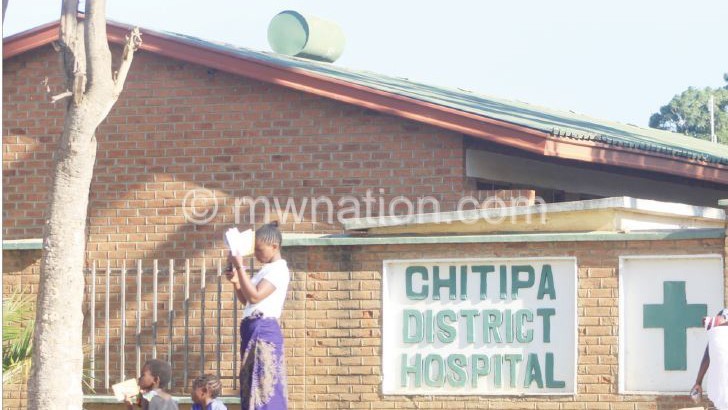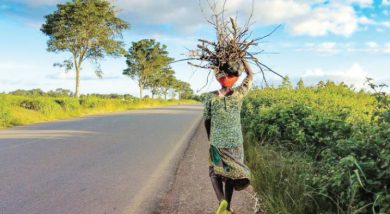Chitipa’s $70m lifeline
Unlocking Malawi’s Guantanamo Bay
For five decades, Chitipa District was the Guantanamo Bay of Malawi. Civil servants in the district—on the northern border with Zambia and Tanzania—confronted tough questions.
What went wrong? Who did you wrong? This is the welcome district social welfare officer Joyce Luhana got in 2013, shortly before Joyce Banda, the country’s first female president, inaugurated the Chinese-built Karonga-Chitipa Road.
“When I arrived from Mzimba, friends and workmates wanted to know the crime I had committed to end up in Chitipa. Question marks followed me everywhere I went. Actually, some people were avoiding me. They couldn’t believe I was innocent although my transfer was a promotion, not a punishment,” she says.
Her experience confirms Chitipa’s unenviable standing as a punishment district. Public servants got accustomed to a gnawing feeling they were serving a sentence.
Misuku councillor Osman Kanyika finds this experience counterproductive.

“No district can develop when public servants feel being penalised, instead of just doing their work. As natives, it is unfortunate that those in power appeared contented using the district to punish its employees, instead of improving people’s lives,” said the former district council chairperson.
He feels the agenda to make Chitipa ‘hell on earth’ may have led to wasted decades as the district had no passable road, reliable water supply and phone network.
Long-serving civil servants say the Karonga-Chitipa Road was so bumpy that workers deployed to Chitipa said bye to fresh fish in Karonga, on the northern shores of Lake Malawi.
Then, the 93-kilometre trip used to take at least four hours.
“The fish would be rotten in the middle of the trip,” Kanyika’s successor Isaac Mwepa says.
“We always got home late, dirty and tired. Besides, water and electricity were elusive. Inwardly, public servants were asking themselves: what wrong had they committed to suffer this hardship while their colleagues elsewhere were having it easy?”
Constructing of the Chinese-built road, which snakes past a mountain range between Karonga and Chitipa, has quenched one of the long unmet needs of workers, natives, business community and other service providers.
The highway, which marks China’s inroads in Malawi, is reshaping the world of work for government agencies, non-governmental organisations (NGOs) and the private sector.
They willingly work in the remote district where many feared to go, and eagerly left.
Five years ago, nearly all directors at the district council secretariat were acting personnel.
A decade ago, Chitipa District Hospital had only 30 percent of the skilled hands it needs to save patients from common conditions.
Nowadays, the massive attrition and vacancy rates are receding.
The district transparency boasts improved service provision as it is able to attract qualified personnel.
At the nearly 300-bed district hospital, nursing officer Selman Kondowe recounted how he almost quit the job when posted there.
“When I was posted here a few years back, I wanted to decline the transfer. The road was bad, water supply intermittent and power blackouts frequent,” says Kondowe.
Not anymore!
“This is a new Chitipa,” he states. “Nowadays, those who come stay longer. The road is good and life is better. Travel time has dropped drastically and other services are improving too,” he says.
The road, funded by China to the tune of almost $70 million (K….), offers Chitipa a lifeline to the rest of the country and beyond.
“It has dramatically unlocked the district. Civil servants here no longer feel it is a punishment,” he quips.
More skilled hands and motivated workers enhance quality of services it offers.
Howard Kayange, a coordinating primary education adviser at the office of the Chitipa district education manager (DEM), says the mood in the district’s schools is also improving.
Nearly 1 040 teachers work in 175 primary schools in district, where each serves about 100 learners. This is way above the international requirement of one teacher for 40 learners. The Ministry of Education envisages a teacher serving no more than 60 learners.
Says Kayange: “The upgrading of the Karonga-Chitipa Road has eased life for overwhelmed teachers. Not many recruits shun Chitipa in preference for other destinations.
“Those already here are happy to stay put because it is easy to travel and most goods and services that were beyond reach are locally available.”
This month, government deployed 96 newly trained teachers to Chitipa.
Unlike in the past, 72 of them reported for duties on day one, 13 on the second and district education manager Muhabi Chivunga was optimistic that all would be in before a week elapsed.
“It is a big turnaround. The turn-out would be low and excuses endless if we were still living in the dark ages, when Chitipa had no good road,” he said.
A female teacher told Exclusive Inquiry that the road and safe water are almost everything.
“With the road and running water, there are very few basics to worry about as we begin a new life in Chitipa,” she said.
Water system gets $13 million upgrade
Engineer Khumbo Mwafulirwa, who supervised the Northern Region Water Board (NRWB), said the construction of the multi-million-dollar water plant partly benefitted from the bitumen road.
He reckoned the project was accomplished in time—from July 1 2015 to December 31 last year—because of timely supply of machinery, construction materials and other accessories even in the rainy season.
“Without the road, it would have been difficult to transport all these goods. Transporting people and cargo to Chitipa was never easy before the Chinese bankrolled the upgrading of the road,” he elaborates.
Similarly, district commissioner Grace Chirwa said the water project is an icing on the cake.
“The road has unlocked the district. People, including civil servants and business owners, are travelling faster. Improved services are coming to the district and the new water supply system is just one of them,” she says.
Chirwa decried that attrition and inefficiencies in the hilly district were high as many amenities were previously unavailable.
“Now the district attracts and retains quality workforce. This can only mean one thing: ‘better services for our people’,” she says with a coy smile.
Council chairperson Mwape is happy that the district is free at last.
To him, neglecting ‘punishment districts’ actually punishes innocent citizens that rely on public servants who may not only be bitter and unenthusiastic, but with questionable integrity, skills and experience.
“It is sad Chitipa silently became a dumpsite. The people whom the rejects were saving were not second-class citizens,” he says.
Mwape is happy that voyagers travel fast. So do traders and service providers.
“This road is very helpful as its impact stretches beyond the borders, linking Malawians with our neighbours in Zambia and Tanzania with whom we enjoy constant trade ties,” he says.
This work was produced as a result of a grant provided by the Africa-China Reporting Project managed by the Journalism Department of the University of the Witwatersrand.





